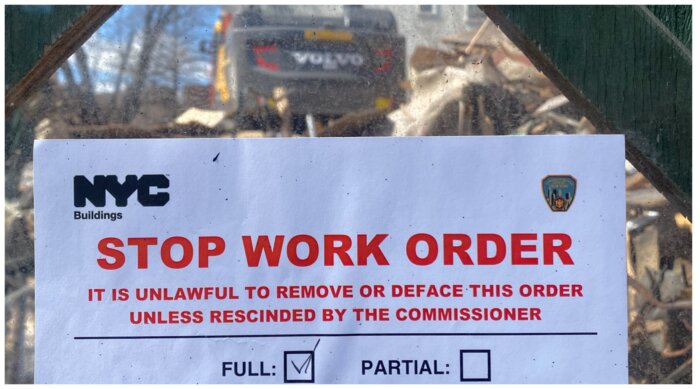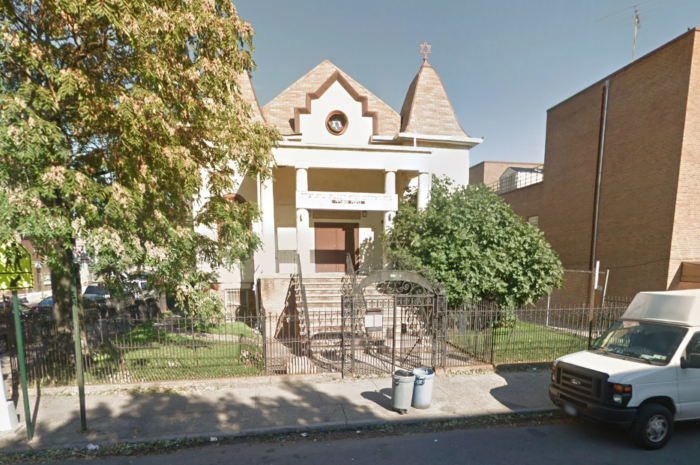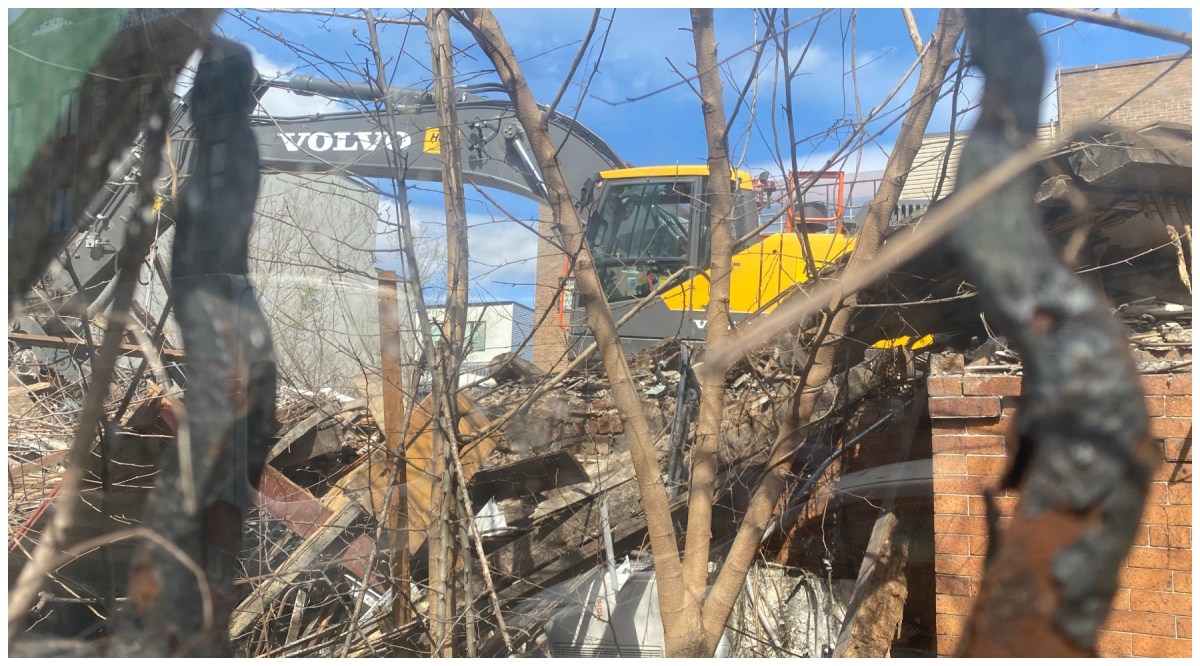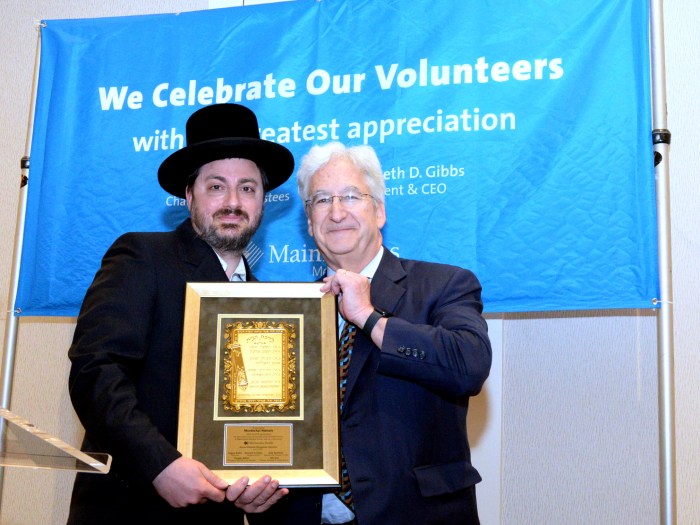Borough Park’s Jewish community is mourning the loss of the neighborhood’s first and oldest surviving synagogue after developers tore down the historic building on Sunday.
The 122-year-old Chevra Anshei Lubawitz at 4024 12th Ave. was reduced to rubble March 17 to the dismay of activists who have been trying for years to save the synagogue since a developer purchased the property in 2017 for $3.1 million.
Sunday’s surprise demolition resulted in the Department of Building’s slapping a Full Stop Work Order on the site after its investigation found that, while the property owners had previously filed an application with DOB for the demolition of the building, they had not been issued permits for the work.

DOB inspectors were called to the scene to investigate reports of ongoing construction work performed on the weekend without an after hours variance permit, however demolition workers had left the scene prior to their arrival.
Inspectors found that the three-story detached wood frame building had been purposefully demolished by contractors with the assistance of heavy machinery. A plywood construction fence facing the public right-of-way had also fallen over during the demolition with debris covering the public sidewalk.
On top of the full stop work order, DOB issued several violations to the contractor, Waterfront Property Management LLC, for carrying out the demolition without a permit, working on the weekend without an after hours variance permit, for failing to safeguard the public, and for not maintaining the plywood construction fence or installing a sidewalk shed.
The contractors did later return to the scene to repair the fence and clean debris from the sidewalk, the DOB noted.
The Department of Environmental Protection also issued an order to stop work at the site until a written scope of work is approved by the DEP and an asbestos assessment is submitted.
Jewish Future Alliance President Yaacov Behrman told Brooklyn Paper that the Jewish community in Borough Park owes much of its existence to the Chevra Anshei Lubawitz.
“The synagogue was definitely not just destroyed. It was desecrated the way it was ripped down,” said Berhman.
First constructed in 1906-07 for Temple Beth El, a congregation of Eastern-European origin, it was sold in 1922 to Chevra Anshei Lubawitz, one of the earliest Brooklyn congregations to affiliate with the Lubavitch Hasidic movement, according to a report submitted by architectural historian Anthony W. Robins to the New York Landmarks Preservation Commission in 2019. However, landmark status was never granted.
Legal efforts to save the Shul have been ongoing since the 2017 sale went through and developer plans were revealed to be replacing the site with a six-story apartment building that would include a new synagogue on the first floor and basement.

Following the sale, several synagogue members sued to stop the demolition, claiming that the deal was not kosher and was facilitated by two members of the board of Chevra Anshei Lubawich without their knowledge and a full membership vote.
Behrman said the legal dispute was far from over when the synagogue was torn down, stating that it violated the The New York Beth Din’s ruling requiring a $5 million bond, and the court’s preliminary injunction that remains in effect for 30 days following the issuance of a written determination by the Beth Din, a Rabbinical Court that offers religious arbitration services for resolving legal issues in accordance with Jewish law.
Lawyers representing members of the congregation of Anshei Lubawitz wrote to the Bet Din on March 18 expressing their “absolute shock and horror” at being blind-sided by the demolition, stating that their clients did not receive the written determination until after the synagogue was torn down.
“One thing is abundantly clear and beyond dispute — the demolition was undertaken in blatant and contumacious violation of the two controlling court orders and can only be understood as a cynical attempt to divest both the Court and the Beth Din of jurisdiction by creating immutable ‘facts on the ground,’” the letter reads.
The Rabbinic court responded Thursday, issuing a order prohibiting the developer from touching the site until the court approves the $5 million bond.
Brooklyn Paper reached out to Waterfront Property Management LLC for comment but did not receive a response at the time of publication.























